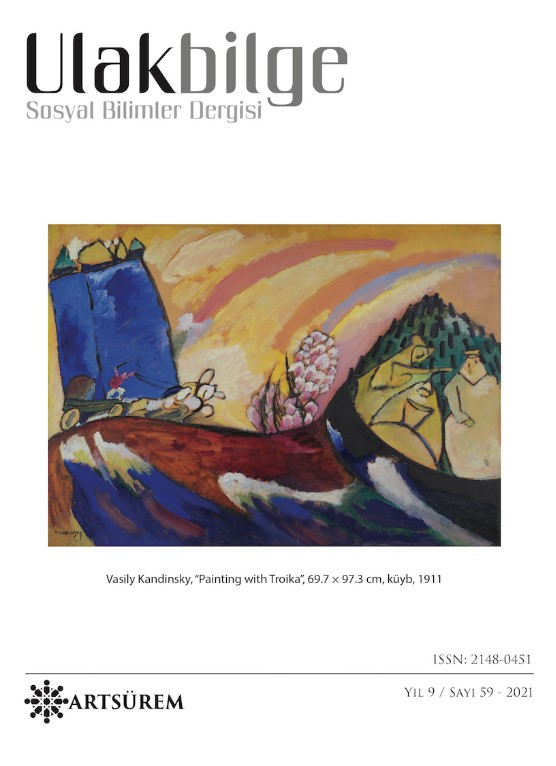ORTAK BİLGİ YAPILANDIRMA MODELİNE UYGUN HAZIRLANAN ÖĞRETİMİN ÖĞRENCİLERİN PROBLEM ÇÖZME BECERİLERİNE ETKİSİ
THE EFFECT OF TEACHING PREPARED IN ACCORDANCE WITH COMMON KNOWLEDGE CONSTRUCTION MODEL ON STUDENTS PROBLEM-SOLVING SKILLS
Author(s): Veysel Haydari, Bayram COŞTUSubject(s): School education, Methodology and research technology, Pedagogy
Published by: Sanat ve Dil Araştırmaları Enstitüsü
Keywords: Science Education; Environmental Literacy; Scientific Process Skills; Common Knowledge Constructing Model;
Summary/Abstract: The aim of this study is to investigate the effect of the education program prepared in accordance with the Common Knowledge Constructing Model on the 5th grade students' problem determination and problem-solving skills in the Science course "Biodiversity". The research sample consisted of 74 fifth grade students studying in a secondary school in Uskudar, Istanbul. In the research, a pre-test-post-test control group pattern, one of the quasi-experimental methods, was used. The study was implemented in the 2018-2019 academic year and 24 of the students were selected as experiment 1, 25 as experiment 2, and 25 as control group. In experiment 1 group, teaching in accordance with CKCM, in the experiment 2 group, teaching in accordance with CKCM was supported with out-of-school learning environments, and in the control group, teaching in accordance with the Science Curriculum. “Problem Identification and Problem-Solving Skills Test (PIPSST)” was used as a pre-test and post-test data collection tool in the experimental and control groups. As a result of the research, it was concluded that the education program with CKCM and out-ofschool learning within the CKCM is more effective in increasing students' problem determination and problem-solving skills compared to teaching in accordance with the science lesson curriculum. It can be said that out-of-school education, which is included in the CKCM, increases students' problem determination and problem-solving skills more. In addition, it was concluded that CKCM and out-of-school learning and teaching improved skills such as analysis, synthesis, evaluation and prediction. When the answers given by the students in the experimental and control groups to the PIPSST open-ended problem were examined, it was observed that the physical, persuasion and political action solution suggestions changed in the experimental and control groups. It was determined that the most and different solution suggestions were in the experiment 2 group. This situation shows that the inclusion of out-of-school learning in the CKCM positively affects the physical, political and persuasion actions of the students towards the solution of the problem.
Journal: Ulakbilge Sosyal Bilimler Dergisi
- Issue Year: 9/2021
- Issue No: 59
- Page Range: 589-607
- Page Count: 19
- Language: Turkish

